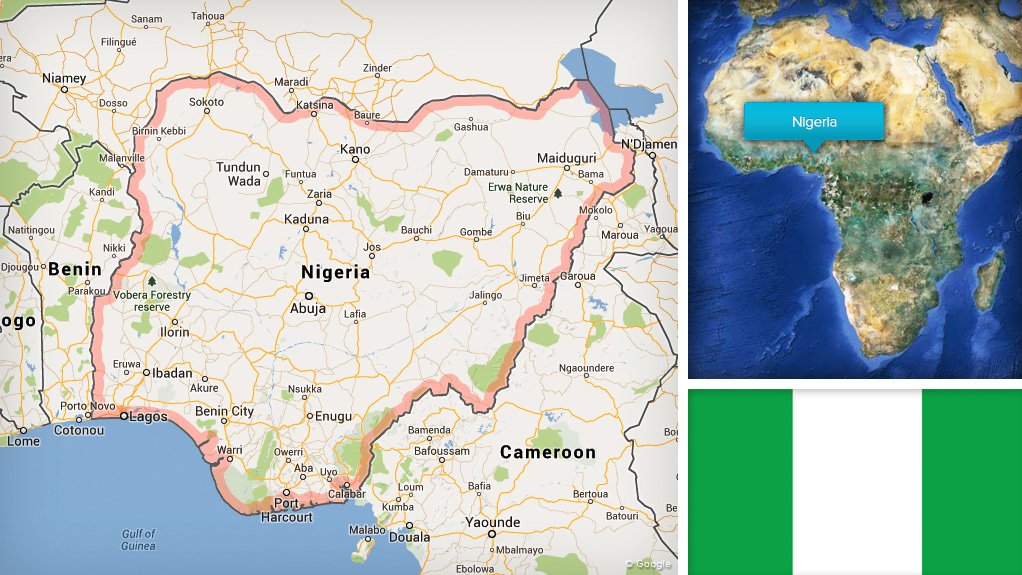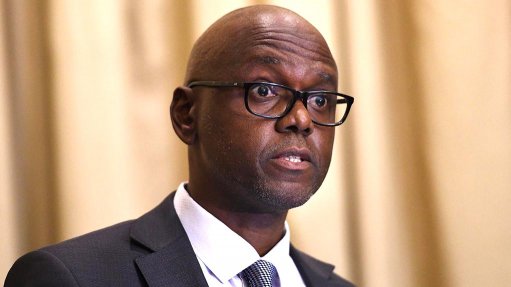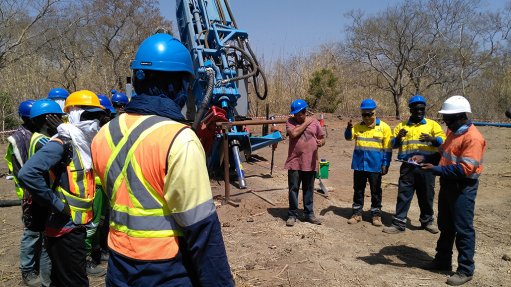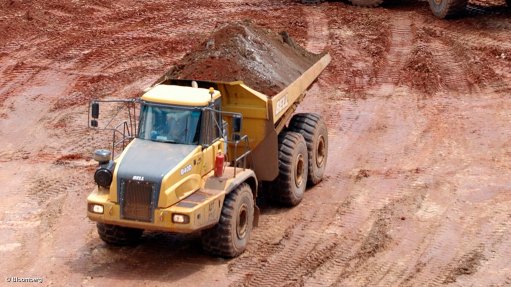Agbaja iron-ore and steel project, Nigeria – update
Name of the Project
Agbaja iron-ore and steel project.
Location
Kogi state, Nigeria.
Project Owner/s
Kogi Iron.
Project Description
The Agbaja plateau hosts an extensive shallow, flat-lying-channel iron deposit, with mineral resources currently estimated at 586-million tonnes at 41.3% iron (within EL12124). Most of the mineral resources are classified as indicated (466-million tonnes at 41.4% iron) and the balance as inferred (120-million tonnes at 41.1% iron).
The Agbaja mineral resource was the basis for the project’s prefeasibility study (PFS). There are sufficient indicated mineral resources at Agbaja to support a five-million-tonne-a-year iron-ore mining and processing operation for more than 35 years. A mine plan entailing 21 years of production was used in the PFS.
The PFS completed in January 2014 proposes the construction of the mine in two stages. The estimated 7.2 km2 Stage 1 mining area, west of the plant site, contains about 158-million tonnes of indicated mineral resources. Targeting the magnetic fraction of the indicated mineral resource, the average grade of material identified for mining is estimated at 46.1% iron, with a corresponding strip ratio of about 0.55:1. As currently designed, this area will provide processing plant feed for an initial 15 years at the planned concentrate production rate of five-million tonnes a year.
The estimated 2.2 km2 Stage 2 mining area is located to the east of the plant site and contains about 66-million tonnes of the indicated mineral resources. The average grade of material is estimated at 44.8% iron, with a strip ratio of about 0.56:1. This area will provide processing plant feed for an additional six years, bringing the combined plant feed from the two areas to 21 years at a concentrate production rate of five-million tonnes a year. Kogi has opted for a mining contractor to conduct all site development, overburden and waste removal, as well as openpit mining, including site rehabilitation, haulage and ore feed to a primary crusher. Mining operations will be conducted 24/7, 365 days a year. It is envisaged that production drilling and blasting will not be required, as all material is regarded as soft, friable and amenable to free dig.
The processing plant will have a primary grind size of 600 μm, with a final grind size at a relatively coarse 250 μm.
Grinding will be followed by low-intensity magnetic separation. This technology has demonstrated reliable primary separation of iron-bearing material for a reasonable final product grade and yield after regrinding the material. Yield is estimated at 45% for a final iron-ore concentrate grade of about 56% iron.
The concentrate slurry will be filtered at Banda to have a moisture content of less than 10% and conveyed to a covered stockpile. Barge loading will be done using a travelling, luffing, telescoping barge loader, filling Mississippi-type barges in a configuration of four barges.
The iron-ore concentrate will be transported an estimated 602 km from Banda along the Niger river to the Escravos transfer station, in the Niger Delta.
At the Escravos transfer station, the concentrate will be transferred into a 20 000 t self-propelled and -unloading ocean barge.
Since 2016, Kogi has advanced its intention to develop an integrated steel plant using the company-leased iron-ore deposit and nearby coal and limestone sources. The results of a laboratory-scale test on the iron-ore have demonstrated that it could be converted into a steel feedstock suitable for electric arc furnaces.
In November 2017, the company started a pilot plant test programme on a large bulk sample to demonstrate the process in a continuous batch mode. Successful completion of this extensive testwork in September 2018 confirmed the feasibility of producing a marketable cast steel product, together with the development of a flowsheet for the processing of Agbaja iron-ore into cast steel suitable for billet making.
Kogi Iron is progressing its bankable feasibility study to support financing for the Agbaja project.
Potential Job Creation
Not stated.
Net Present Value/Internal Rate of Return
The project has an estimated pretax net present value, at a 12% discount rate, of $420-million and an internal rate of return of 23.7%, with a four-year capital payback.
Capital Expenditure
Capital costs are estimated at $497.1-million.
Planned Start/End Date
Not stated.
Latest Developments
The Nigerian Ministry of Mines and Steel Development (MMSD) has recognised the effort that Kogi Iron is making to contribute to the diversification of the country’s economy through the proposed Agbaja project.
The company received a formal letter at the end of August from Mining Minister Olamilekan Adgebite, stating that the MMSD is willing to facilitate with other Ministries on behalf of Kogi Iron when necessary.
This followed Kogi Iron presenting its proposal for Mineral Sector Support for Economic Diversification (MinDiver) project funding of Kogi’s environmental, social and governance programmes, which includes water management, infrastructure building, agricultural initiatives and local business opportunities, should the mine proceed to development.
The company intends to prepare and submit a revised proposal and formal application for MinDiver project funding, which is provided by the World Bank, in due course.
Kogi Iron says the letter from the Nigerian government demonstrates its support for the critical path drivers that will accelerate the development of the project, particularly in obtaining a competitive gas supply contract and market entry policy for the replacement of steel imports.
In follow-up communications with the Ministry, it provided the company with detailed information on the background, current policy status, administrative processes and key contacts in the Nigeria National Petroleum Company and its government subsidiary gas supplier, Nigeria Gas Company.
Based on inputs by energy consultants and advisers, Kogi Iron has held discussions and initiated an information exchange as the basis of an application for a gas supply agreement to be sourced from the Ajaokuta–Kaduna–Kano gas pipeline.
Nigeria has substantial domestic demand for steel products, which is currently met largely through imports of scrap steel raw materials.
Key Contracts and Suppliers
None stated.
Contact Details for Project Information
Kogi Iron, tel +61 8 9200 3456, fax +61 8 9200 3455 or email info@kogiiron.com.
Comments
Press Office
Announcements
What's On
Subscribe to improve your user experience...
Option 1 (equivalent of R125 a month):
Receive a weekly copy of Creamer Media's Engineering News & Mining Weekly magazine
(print copy for those in South Africa and e-magazine for those outside of South Africa)
Receive daily email newsletters
Access to full search results
Access archive of magazine back copies
Access to Projects in Progress
Access to ONE Research Report of your choice in PDF format
Option 2 (equivalent of R375 a month):
All benefits from Option 1
PLUS
Access to Creamer Media's Research Channel Africa for ALL Research Reports, in PDF format, on various industrial and mining sectors
including Electricity; Water; Energy Transition; Hydrogen; Roads, Rail and Ports; Coal; Gold; Platinum; Battery Metals; etc.
Already a subscriber?
Forgotten your password?
Receive weekly copy of Creamer Media's Engineering News & Mining Weekly magazine (print copy for those in South Africa and e-magazine for those outside of South Africa)
➕
Recieve daily email newsletters
➕
Access to full search results
➕
Access archive of magazine back copies
➕
Access to Projects in Progress
➕
Access to ONE Research Report of your choice in PDF format
RESEARCH CHANNEL AFRICA
R4500 (equivalent of R375 a month)
SUBSCRIBEAll benefits from Option 1
➕
Access to Creamer Media's Research Channel Africa for ALL Research Reports on various industrial and mining sectors, in PDF format, including on:
Electricity
➕
Water
➕
Energy Transition
➕
Hydrogen
➕
Roads, Rail and Ports
➕
Coal
➕
Gold
➕
Platinum
➕
Battery Metals
➕
etc.
Receive all benefits from Option 1 or Option 2 delivered to numerous people at your company
➕
Multiple User names and Passwords for simultaneous log-ins
➕
Intranet integration access to all in your organisation





















